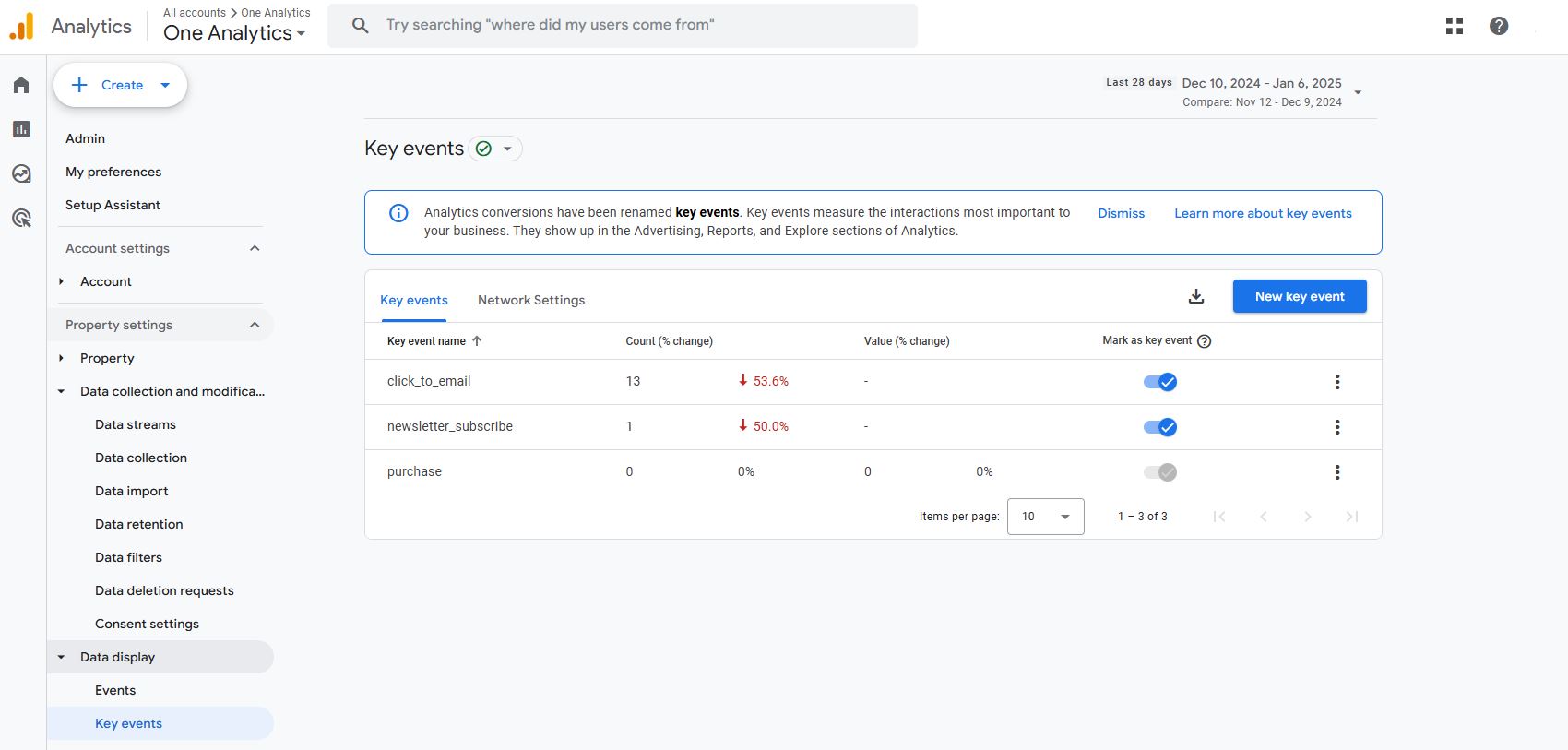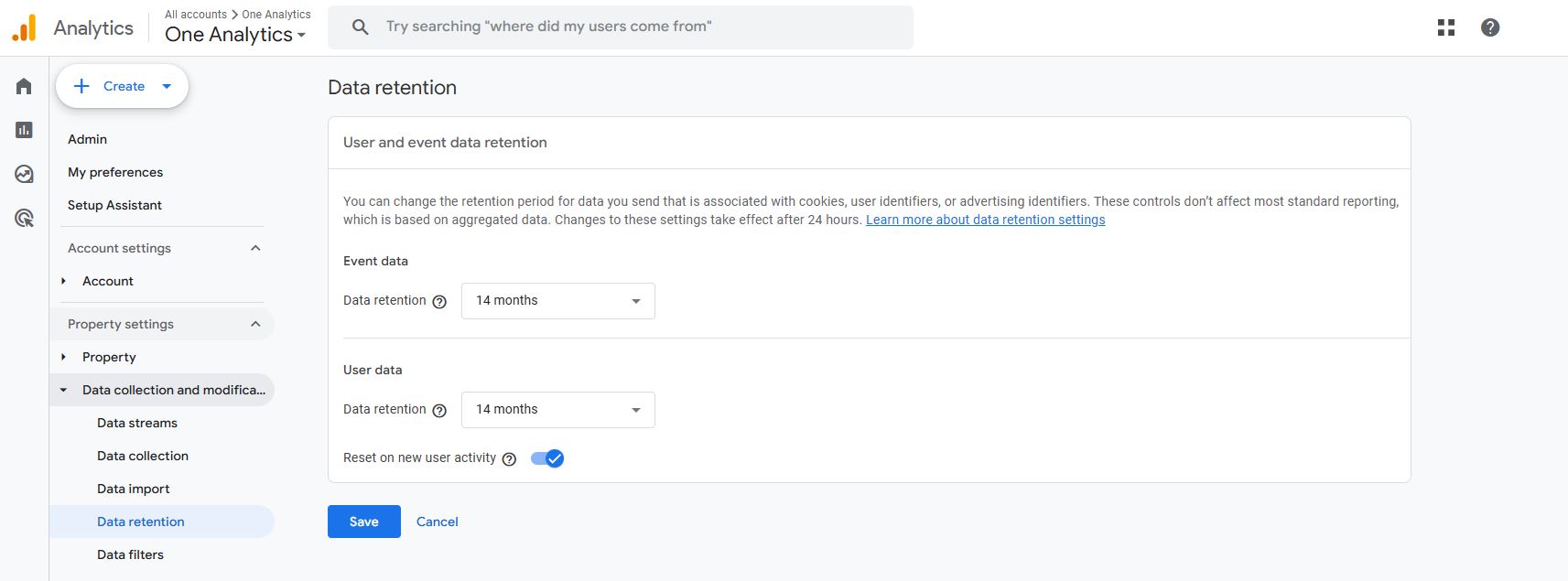Google Analytics is a powerful tool that empowers users to track their website’s data in real time. However, if you’re just starting out, it is natural to feel uncertain. How much does Google Analytics cost? Where should you begin when learning to use this platform? In this blog post, we’ll answer these questions and share some practical tips and tricks to help you get the most out of Google Analytics.
Google Analytics Cost
Google Analytics (GA4) is free to use. It provides powerful tools for tracking and analyzing website data, making it an excellent option for small to medium-sized businesses.
However, there is also a paid version called Google Analytics 360 (GA360), which starts at $50,000 per year. GA360 is designed for larger enterprises with advanced data needs. (You can learn more about GA360 here.) While GA360 offers some additional features and capabilities, GA4 includes nearly all the same functionality but is scaled to meet the needs of smaller organizations at no cost.
Tips and Tricks for Google Analytics
Starting with Google Analytics can feel overwhelming, but these tips can make the process much smoother.
Create a Measurement Plan
Before setting up Google Analytics, it is important to take a step back and create a measurement plan. A measurement plan ensures that you’re collecting data on the most important interactions. For example, if you have a newsletter sign-up form on your site, you might want to track how many times the form is completed. The goal at this stage is simply to identify key actions, such as form submissions, button clicks, or purchases. This data will later help you analyze trends and measure the impact of these user interactions on broader business goals.
Use Google Tag Manager
After setting up your Google Analytics property, the next step is to add the associated tracking to your website. We recommend using Google Tag Manager (GTM) for this purpose. GTM simplifies the process by allowing you to add both a base configuration tag and event tags to your site without needing to modify the website code.

Using GTM not only streamlines the initial setup but also makes it easier to manage and update your tracking as your needs evolve. It is a flexible, user-friendly tool that saves time and ensures your tracking stays organized. For more information on the benefits of GTM, check out our blog post “3 Reasons Why You Should Use Google Tag Manager.”
Check Your Tracking with DebugView
After setting up your tracking in Google Tag Manager, it’s essential to verify that Google Analytics is collecting accurate and complete data. DebugView offers a real-time view of how your site interactions are recorded during a debug session, making it easy to confirm that each event is firing as intended and to catch issues before they affect your reporting.
To get started, check out our guide to using DebugView in GA4.
Mark Key Events
Not all events are created equal, and in Google Analytics, key events help you prioritize the most important user interactions for your business. Key events are specific actions that align closely with your business goals, like completing a purchase, signing up for a newsletter, or submitting a contact form. By marking these events as “key”, you ensure they receive extra attention in your analytics reporting.
To mark an event as a key event in GA4:
- Go to Admin > Events and locate the event you want to highlight.
- Mark it as a key event by clicking the toggle next to it.
- You’ll then see the event appear in the Admin > Key Events page (as shown in the snip below).

Designating key events helps you focus on the metrics that truly matter. It also improves reporting efficiency by surfacing these events in relevant insights and dashboards. Remember, you can revisit and adjust your key events as your business goals evolve.
By using key events thoughtfully, you’ll gain deeper insights into the actions that drive success and can better optimize your site to meet your objectives.
Adjust Your Data Retention Settings
One important consideration when using Google Analytics is its data retention policy. By default, GA4 only stores event-level data for 2 months.
We recommend adjusting your data retention settings in GA4 to the maximum retention period of 14 months. To adjust your data retention settings in GA4:
- Go to Admin > Data Collection and Modification > Data Retention.
- Select the maximum retention period of 14 months.
- Save your changes. The result should look like the snip below.

While this ensures you retain data for the longest period allowed by GA4, it is still limited. For businesses that require longer-term data storage and access, consider setting up a BigQuery integration, which allows you to export and store GA4 data indefinitely.
The GA4 and BigQuery integration only starts backing up data from the time it is set up onward. It doesn’t include historical data already in your GA4 account. For example, if you set it up today, the backup will begin with yesterday’s data and move forward. Setting up BigQuery as early as possible ensures you have the longest historical dataset available moving forward. This integration is ideal for businesses that want to analyze long-term trends or maintain a robust data archive for custom reporting.
Link to Other Google Products
One of the biggest advantages of using Google Analytics is its seamless integration with other Google products, allowing you to unlock additional insights and optimize your marketing and analytics efforts. By connecting GA4 to other tools in the Google ecosystem, you can streamline workflows and gain a more comprehensive view of your data. We especially recommend linking to Google Ads and Google Search Console.
Linking Google Ads to GA4 lets you track the performance of your ad campaigns more effectively. You can analyze how users from specific ads interact with your website, measure conversions, and refine your targeting to maximize ROI. Check out Google’s documentation on how to link Google Ads to GA4.
By integrating Search Console with GA4, you can access valuable organic search data directly within your analytics dashboard. This includes metrics like search queries, impressions, and click-through rates, helping you understand how users find your site through search engines. Start here with Google’s documentation on connecting Search Console to Google Analytics.
Conclusion
We hope this guide has given you valuable insight on how to make the most of Google Analytics. However, this is just the beginning. Google Analytics offers a wealth of tools and features to explore. Take some time to dive into the platform and discover everything it has to offer!
Trying to create customizable dashboards with your Google Analytics data? Check out our blog post on setting up GA4 reporting in Looker Studio to take your insights to the next level.
Need assistance setting up your GA4 property or optimizing your analytics strategy? Check out our Google Analytics consulting services to get started with expert guidance tailored to your needs.

